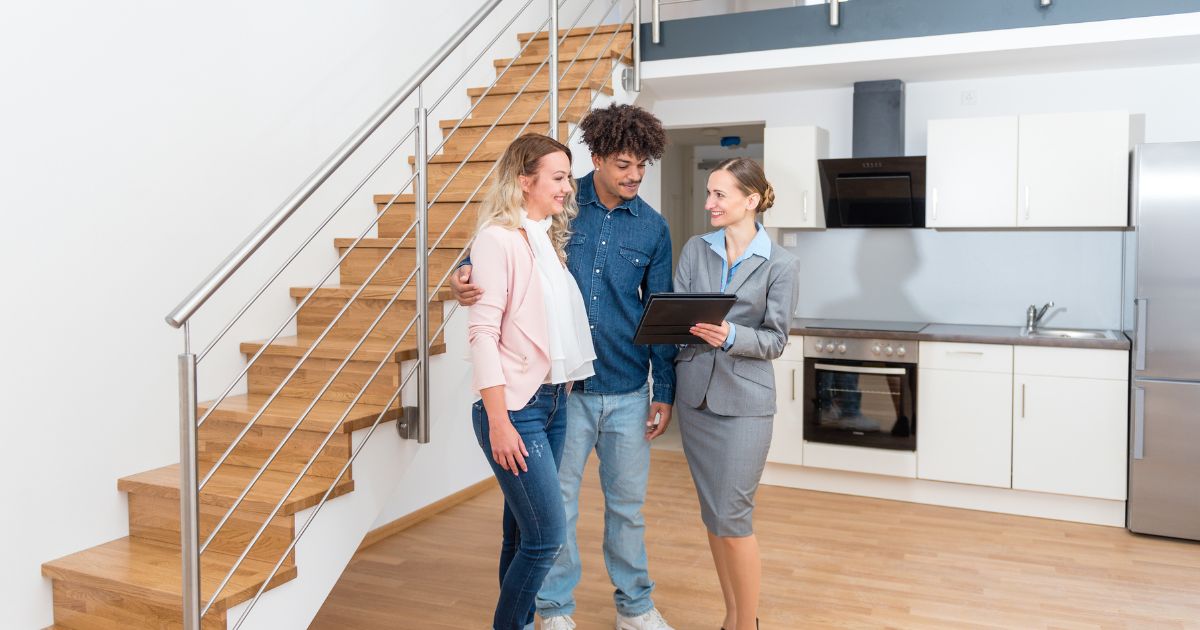
 There are a variety of reasons people sell their home. They could be moving for a job, wanting to downsize or upsize, or looking to relocate, to name a few. And as a buyer, purchasing their home is very exciting but also a significant decision and can be a bit overwhelming. Knowing what questions to ask when viewing a house is one way to narrow options and find the perfect home. Here are some things to consider when touring a property:
There are a variety of reasons people sell their home. They could be moving for a job, wanting to downsize or upsize, or looking to relocate, to name a few. And as a buyer, purchasing their home is very exciting but also a significant decision and can be a bit overwhelming. Knowing what questions to ask when viewing a house is one way to narrow options and find the perfect home. Here are some things to consider when touring a property:
1. Is there a History of Water in the Home?
Something you should know is whether the home is in an area prone to flooding. If it is, you will likely need to purchase flood insurance on top of your home insurance, a cost you should factor into your budget. Especially in Florida, a state that is very prone to flooding, ask how the area fares and what zone you’re in. This will give you an idea of the type of flood insurance you may need as well. If there is a history of water in the basement, or if you have a high water table, ask how frequently water gets in. Depending on how you plan to use the space, this could determine how you handle it. Ask if there is a sump pump too, as this system brings water from the basement to the outside of your home. Some homes may have sump pumps installed for preventive purposes only, so make sure to ask about this.
2. What are the Ages of the Major Systems, and Have There Been any Improvements Made to the Home?
There are certain systems throughout the home that, while they can last a while, will need to be replaced eventually. These include things like:
- The air conditioning unit
- The furnace
- The hot water heater
- Keep in mind that the size of the heater is important – the more people you have in your household, the larger the tank should be so you don’t run out of hot water!
- The roof
- The windows
- Kitchen appliances, including the fridge, dishwasher, or oven
Additionally, Ask if there have been recent updates or improvements in the past 5-10 years. When it comes to repairs or remodeling, it’s a good idea to ask about any upgrades that have been done to the home.
3. What is Included in the Sale?
Once and a while, there are certain fixtures or add-ons in a home that may or may not be included in the sale of the house. In most cases, anything categorized as a fixture is included in the sale of the home. This could consist of items like window treatments, light fixtures, etc. That said, sometimes even these are not part of the sale. On the other hand, sometimes sellers can leave behind things the buyer may not have been aware of. It’s a good idea to ask so that you know exactly what is included in the sale when you are on a home tour.
Keep in mind you will also be taking over any utility costs, including heating/cooling, electricity, water, trash/recycling, etc. These are important to add to your monthly budget, so ask what the average costs of these utilities are. Remember, the temperature you like your home to be could be different from what others do, so the cost could be a bit more or a bit less. Typically, HOAs in Massachusetts, New Hampshire, and Florida, for example, bundle some costs into one monthly HOA fee, so be sure to check on those to see what you could be paying. To save on costs, consider investing in energy-saving appliances.
4. What Does the Neighborhood Look Like?
It’s important to drive by the home and around the neighborhood to make sure there are no surprises, like railroad tracks in the backyard, or lots of landscaping to be done, for example. When you’re driving by and you see neighbors outside, feel free to ask about the general area to get a better sense of the neighborhood.
Often, buyers will do a practice run of the commute to and from work to get a sense of timing and traffic. Ask neighbors, if they have kids, what the bus ride to school is like, if this applies to you. If you have a small driveway, what’s the parking situation for guests?
